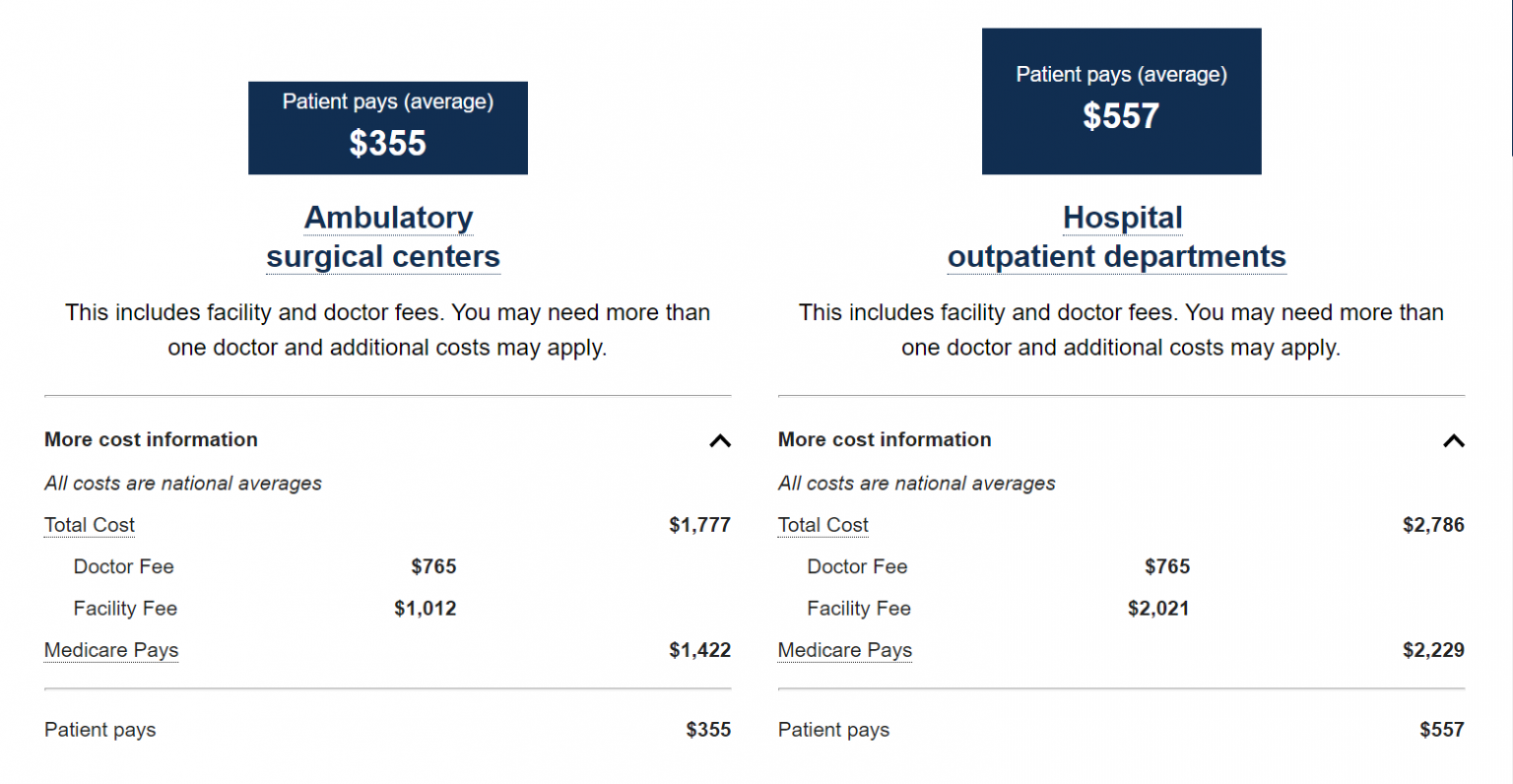Look For Optical Centers That Take Medicare
There are a few national optical centers that accept Medicare. The easiest way to check whether the provider of your choice accepts Medicare is to check its website to see if Medicare is listed as an accepted insurance plan. Also, be sure to check the service coverage to make sure your specific needs will be met at this specific establishment.
Do Medicare Advantage Plans Include Vision Benefits
Medicare Advantage plans, also known as Medicare Part C or MA plans, are supplemental Medicare plans offered through private insurance companies that are approved by Medicare. A Medicare Advantage plan will bundle both Medicare Part A and Medicare Part B. Most Medicare Advantage plans also include additional health benefits for dental, vision, and hearing. Some MA plans may also include prescription drug coverage, known as Medicare Part D.
Not every single MA plan will include all of the aforementioned additional benefits. Interested parties should always contact the insurance company to confirm additional coverage for extra health care benefits such as vision.
How Much Does Vision Care Cost With Medicare
Vision care costs depend on what your needs are and what type of Medicare insurance you have.
With Original Medicare, you pay 100% for eye exams for eyeglasses or contact lenses. If you receive vision care that is medically necessary, Part B coverage kicks in and you pay 20% of the Medicare-approved amount for doctors services after you satisfy your annual Part B deductible . If the service is in a hospital outpatient setting, you also pay a copayment. Your total out-of-pocket costs will depend on:
- Other insurance you may have
- How much your doctor charges
- Whether or not your doctor accepts Medicare assignments
- The type and place you get your test, item, or service
Talk with your provider to find out more about your out-of-pocket costs with Original Medicare.
If you have a MA plan, vision care costs vary depending on your plan. All MA plans offer the same Medicare-covered, medically necessary benefits as Part B. Still, you typically must receive care from in-network providers, and your copay/coinsurance structure may be different.
Whether you have Original Medicare or a MA plan, medically necessary vision care is considered a Medicare-covered benefit. You are eligible to receive services from approved providers, and you may be responsible for a portion of the costs in the form of a copay or coinsurance.
Recommended Reading: Does Medicare Pay For Home Care After Surgery
How Does Original Medicare Cover Vision Care Services
Original Medicare Part A covers medically necessary procedures that require inpatient hospitalization. Original Medicare Part B covers cataract surgery and one pair of glasses or contacts following lens implantation procedures. Part B also covers periodic vision screenings for glaucoma and/or diabetic retinopathy for people who are in high risk categories. And Part B also covers diagnosis and treatment for macular degeneration.
If you currently have health care coverage with Medicare Part A and B, you have the following limited benefits for specific vision care services:
Will Medicare Pay For Treatment For A Detached Retina

A detached retina can cause permanent vision loss if not treated quickly. Medicare will cover surgery to repair a detached retina, but youll be responsible for your Part B deductible and 20% coinsurance, which Medigap can help take care of. Depending on where you have your procedure, a copayment might apply as well. Similarly, Medicare Advantage will cover retina surgery to preserve vision, although your out-of-pocket costs will depend on your plan.
Also Check: What Is Medicare Part B Deductible Mean
Does Medicare Pay For Glasses Or Contacts
Medicare doesnât typically cover the cost for eyeglasses or contact lenses, and youâll normally have to pay the full cost for these items, as well as exams to get fitted for them. However, if you get cataract surgery to insert an intraocular lens, Medicare Part B covers corrective lenses following your surgery. Youâre covered for either one pair of glasses or contact lenses if you get these items through a supplier that is enrolled in the Medicare program.
All beneficiaries with Medicare Part B are covered, and youâll pay 20% of the Medicare-approved cost for the eyeglasses or contact lenses . If you decide to upgrade your frames, youâll pay for any extra costs.
Eye Exams For Diabetics
If you are diabetic, Medicare Part B allows one eye exam per year for diabetic retinopathy. Your benefits cover 80 percent of the exam if the eye doctor is legally permitted to perform the exam in your service area. You are responsible for the remaining 20 percent of the Medicare-approved amount for the doctors visit. You are also responsible for your Part B deductible.
You May Like: Does Medicare Pay For Teeth Implants
How Often Can You Have An Eye Test With Medicare
Neither original Medicare nor Medicare supplement plans pay for routine eye exams, eye glasses, or contacts.
But Medicare offers some benefits if you are diagnosed with diabetes, have high eye pressure and are at risk for developing glaucoma, or if you have cataracts and need surgery. Prevent Blindness, a nonprofit advocacy organization, spells out the benefits. Here are some highlights:
Whether you have traditional Medicare or Medicare Advantage, your first step upon enrolling is to have your Welcome to Medicare preventive visit in your first 12 months of having Part B coverage. There should be no cost to you unless the healthcare provider runs extra tests or performs additional services. Youll get a basic visual acuity screening as part of the visit, and youll want to ask about a plan for eye exams then. After that, your free Medicare annual wellness visit can help you keep track of your preventive care.
Diabetes: If you have diabetes, Medicare will pay 80% of the cost of an annual glaucoma screening and comprehensive eye exam that can also detect diabetes-related retinopathy. If you need more than one exam a year, youll have to pay for it.
Age-related macular degeneration: If you have an eye exam and it shows that you have AMD, Medicare will pay 80% of the cost of the test and then the cost of annual tests, plus the cost of treatment. You must pay for more frequent tests.
Glaucoma:Medicare will pay for a glaucoma test annually if one of the following applies to you:
Does Medicaid Cover Eye Exams
Most states will cover routine eye exams, but covered exams may be less frequent than with other types of health insurance. For instance, a vision insurance plan might cover eye exams every year while a state Medicaid program might cover it once every three years.
Some Medicaid programs include coverage of refraction exams, which test the patients ability to see an object at a specified distance.
Read Also: Can I Sign Up For Medicare Before I Turn 65
Designing Your Eyecare Treatment Plan
At Poudre Valley Eyecare, our optometrists can help you take control of your eye health by performing a comprehensive eye exam and designing a treatment plan that meets your needs. Our family-run practice offers premier eye care to the Front Range of Colorado, including Fort Collins, Loveland, Wellington, Timnath and Greeley.
For more information and guidance around your vision and eyecare treatment plan, contact our team today. Find detailed information about your Medicare coverage at MyMedicare.gov.
What Vision Benefits Does Medicare Part D Cover
You may need medications for an eye infection, allergies, or conditions like glaucoma or macular degeneration, or to diagnose and prevent eye diseases.
Eye medications often require a prescription. Some like artificial tears, eye drops, and ointments may be available over-the-counter, though youll need a prescription for Medicare to cover it.23
Medicare Part D covers medications via stand-alone Part D plans or MA plans.24 In 2019, 45 million people had opted for Part D coverage in 2019 almost half were in prescription drug plans .25Costs, policies, and covered medications vary widely depending on the plan.26
Also Check: How To Find My Medicare Claim Number
Does Medicare Cover Vision And Dental
Original Medicare does not cover routine dental or vision care. There are certain circumstances under which Original Medicare may provide some coverage for dental or vision care in an emergency setting or as part of surgery preparation.
However, you may be able to receive routine dental and vision coverage by enrolling in a Medicare Advantage plan that includes dental and vision benefits.
How Does Medicare Cover Vision Services And Treatment

Medicare wont pay for routine vision services, but it will cover the cost of diagnosing and treating most eye diseases and conditions.
Q: How does Medicare cover vision services and treatment?
A: Original Medicare wont pay for routine vision services, but it will cover the cost of diagnosing and treating most eye diseases and conditions. Most Medicare Advantage plans do include coverage for routine vision services like eye exams and glasses or contacts. They will also cover treatment for eye diseases and conditions, although the out-of-pocket costs can vary considerably depending on the specific plan.
This FAQ addresses the specifics of Original Medicare coverage, since its the same for all beneficiaries. But its also important to note that supplemental coverage provided by Medigap, Medicaid, or an employer-sponsored plan can result in two Original Medicare beneficiaries having very different out-of-pocket costs when all is said and done.
Read Also: Can I Print My New Medicare Card Online
Does Medicare Cover The Cost Of Cataract Surgery
Medicare does cover cataract surgery as a medically necessary surgery. You can work with your doctor and the hospital or facility where youll have the surgery to help estimate the costs. Youll also want to determine whether the surgery will be inpatient or outpatient.
This will impact what you pay. You can also to check if youve met your deductible, which must happen before Medicare will start to pay.
Youre Our First Priorityevery Time
We believe everyone should be able to make financial decisions with confidence. And while our site doesnt feature every company or financial product available on the market, were proud that the guidance we offer, the information we provide and the tools we create are objective, independent, straightforward and free.
So how do we make money? Our partners compensate us. This may influence which products we review and write about , but it in no way affects our recommendations or advice, which are grounded in thousands of hours of research. Our partners cannot pay us to guarantee favorable reviews of their products or services.Here is a list of our partners.
Read Also: Can I Get Braces With Medicare
Which Medicare Supplements Cover Vision Care Vision Exams And Glasses
Medicare supplements are intended to help fill the gaps for out-of-pocket expenses, such as copays, coinsurance, and deductibles incurred when you access your Part A and B benefits. This applies to Medicare-covered services only. For Medicare-covered vision care, for instance, if you see an eye doctor for treatment of glaucoma, your Medigap policy will typically cover the 20% that you are responsible for after Part B pays 80% of Medicare-approved charges, and after you pay your Part B annual deductible.
Exceptions to 100% coverage of your Part B coinsurance or copay are: Plans K and L pay a percentage of your Part B coinsurance or copay and have out-of-pocket yearly limits that apply.
Exceptions to Part B annual being your responsibility are: Plans C and F pay your Part B annual deductible, but these plans are not available to people who are newly eligible for Medicare on or after January 1, 2020.
Medigap does not typically cover routine vision exams or corrective lenses because these are not covered by Medicare. Some Medigap plans, however, offer discounted vision exams and glasses as an add-on or extra benefit for their members. Similar to these extra benefits that are offered through Medicare Advantage plans, you must use the Medigap plans in-network providers and adhere to the plans rules and restrictions. You may need to pay an additional monthly premium to have access to these benefits.
Medicare Advantage With Vision Care
Medicare Advantage plans combine all the benefits of Original Medicare Parts A and B, and they are free to offer extra services as part of the same package.
Part C plans are offered by private insurance carriers, and they entirely replace beneficiaries Original Medicare plans and cannot be combined with a Medicare Supplement plan.
Seniors can shop around for a Medicare Advantage plan that offers vision coverage and speak with a plan representative about covered benefits. Medicare Advantage plans that include routine vision coverage may include an allowance for eyeglasses or contact lenses, as well as an annual vision exam.
Don’t Miss: Will Medicare Pay For Cialis
Does Medicare Cover Glasses
Medicare doesnt usually cover eyeglasses or contacts, so youd have to pay 100 percent of the cost with the exception of certain eye conditions. In some cases, Medicare Part B can help you pay for corrective lenses if youve undergone cataract surgery to implant an intraocular lens.
After cataract surgery, you can receive up to one pair of eyeglasses with standard frames or one set of contact lenses. If youve had cataract surgery and require eyeglasses and other vision care, youd still have to pay 20 percent of the Medicare-approved amount and the deductible.
Medicare: Stingy On Routine Eye Care
As we age, we’re more likely to experience a host of vision-related issues. And, unfortunately, in many cases, Medicare won’t cover those issues. For example, if you’re having trouble seeing out of your current pair of glasses, Medicare won’t pay for you to have your eyes checked, nor will it pay for a replacement pair.
IMAGE SOURCE: GETTY IMAGES.
But while Medicare doesn’t cover what’s considered routine eye care, it will cover certain eye issues that are deemed medical problems. For example, Medicare Part A, which covers hospital stays, will pay for vision care related to medical emergencies or traumatic injuries. Medicare Part B, meanwhile, will typically cover cataract surgery. Specifically, Medicare will cover the removal of the cataract, basic lens implants, and one set of prescription eyeglasses or one set of contact lenses following the surgery.
Medicare Part B will also cover an annual eye exam for diabetic retinopathy provided you’ve officially been diagnosed with diabetes. Furthermore, Part B will cover a glaucoma test once a year for those at high risk for the disease. Additionally, Part B will cover certain diagnostic tests or treatments related to eye disease, including injections for age-related macular degeneration. Keep in mind that in all of these cases, you’ll still generally be responsible for 20% of the Medicare-approved amount of each treatment or procedure, but the bulk of the cost will be absorbed by Medicare.
Don’t Miss: How To Register For Social Security And Medicare
Will Medicare Cover Treatment For Glaucoma
Glaucoma is a disease that damages the optic nerve, potentially resulting in vision loss. Medicare Part B will cover annual glaucoma screenings for those considered high-risk, including diabetics and older Americans with a family history of the disease. African Americans aged 50 and older, and Hispanic individuals aged 65 and over are also considered high-risk.
Youll still be responsible for your Part B deductible and if youve already met the deductible, 20% of the cost of your exam. .
Glaucoma treatment is generally covered under Medicare. Outpatient laser surgery falls under Part B, and eye drops to address the condition fall under Medicare Part D. Your out-of-pocket costs associated with your drops will depend on your Part D plans formulary.
Because Medicare Advantage is required to provide coverage for the conditions that are covered by Original Medicare, it also covers glaucoma screenings and treatment. But because Medicare Advantage plans can design their own benefits, the out-of-pocket costs can vary considerably from one plan to another.
Medigap, meanwhile, can cover some or all of the costs associated with your glaucoma screening and treatment under Original Medicare by picking up the tab for your deductibles and coinsurance. And if you have supplemental coverage provided by an employer, your out-of-pocket costs will depend on the specifics of the plan.
What Kind Of Vision Care Is Covered By Medicare

Medicare helps pay for these medically necessary vision-related services:
- Cataract surgery: This is paid for if it is done using lasers or traditional surgical techniques. This procedure replaces your cloudy lens, which is the source of your blurry vision, with a clear artificial lens called an intraocular lens .
- Corrective lenses if you have cataract surgery: Either one pair of eyeglasses with standard frames or one set of contact lenses from a supplier who is enrolled in Medicare.
- Glaucoma screening test: Covered once every 12 months if you are at risk for glaucoma, which is increased pressure within the eyeball that adversely impacts your sight over time. Risk factors for glaucoma are:
- A family history of glaucoma
- If you are African American and aged 50 or older
- If you are Hispanic and aged 65 or older
You May Like: Does Medicare Cover A Nebulizer
Will Medicare Cover Treatment For Eye Injuries
Like excessive dryness, eye injuries arent considered routine, and are therefore eligible for coverage under Medicare, subject to the usual 20% coinsurance and deductible that Medigap can help with. Medicare Advantage will cover treatment for eye trauma as well, although out-of-pocket costs will depend on the plans benefit structure.
